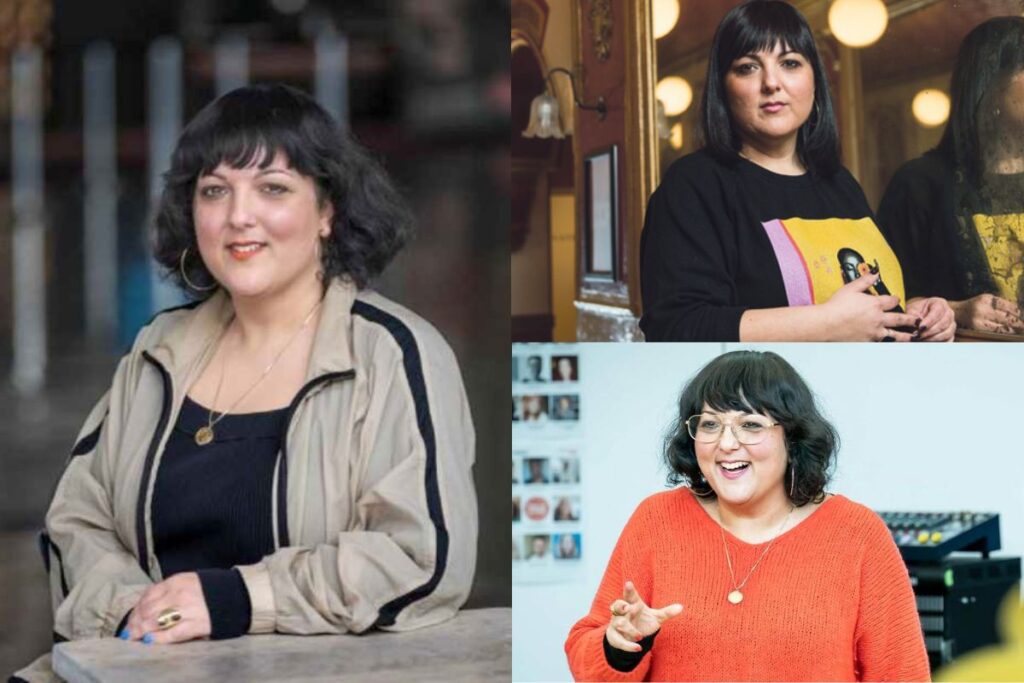Nadia Fall is one of those names that keeps coming up if you’re into theatre. But even if you’re not, chances are, you’ve felt the ripple of her work somewhere. Her plays hit close to home. Her stories stick with you. And she’s not the kind of director who plays it safe. She’s sharp, emotionally tuned-in, and fully committed to making theatre feel like it belongs to everyone — not just the people in the front row.
As of 2025, she’s the new Artistic Director and Joint CEO of the Young Vic Theatre — a venue known for bold choices and fresh voices. And honestly? She’s the perfect fit.
A Bit About Where She’s From
Born in November 1976, Nadia Fall studied at Goldsmiths, University of London. It’s one of those schools where creativity isn’t just encouraged — it’s expected. You can feel that influence in her work. It’s thoughtful but never snobbish. It doesn’t look down on the audience. It invites you in.
Before the big-name jobs, Nadia was already doing interesting things. She was drawn to real-life stories. Voices you don’t always hear on stage. Her work doesn’t shout — it speaks clearly, with heart.
Not Your Usual Theatre
Take “Home”, for example. It’s one of her most well-known pieces. Built on interviews with young people in a homeless hostel, it’s raw, funny, and emotional — all the things that make live theatre unforgettable. The show had its run at the National Theatre and became part of their Live series. That alone tells you how much it resonated.
Another standout was “Welcome to Iran” (2020). She travelled to Tehran, spoke to real people, and built a show that pushed past headlines and politics. It was full of warmth, humour, and a genuine look into daily life.
If you’ve ever felt like theatre wasn’t “for you”, watching one of Nadia Fall’s plays might change your mind.
Running Stratford East
Between 2017 and 2025, Nadia Fall was in charge of Theatre Royal Stratford East. And it was anything but quiet. She brought in plays that made people talk — not in a “Did you see what she wore?” kind of way, but in a “That really hit me” kind of way.
She wasn’t just choosing good scripts — she was backing writers and actors who deserved a spotlight. Stratford East became a place people went to see something different.
Taking The Reins At The Young Vic
In 2025, Nadia Fall stepped into her role at the Young Vic, following Kwame Kwei-Armah. Big shoes to fill — but no doubt, she’s got it covered.
When she introduced the new season, she looked excited — and rightly so. Her programming includes a mix of new work, fresh takes on classics, and a push toward more local engagement. There’s a focus on identity, community, and the in-between spaces of life — the ones most of us live in but don’t always talk about.
Nadia Fall Jump Into Film
It’s not just theatre anymore. Nadia Fall’s film debut, “Brides” (2025), caught the attention of major festivals like TIFF and Filmfest Munich. The story? Two British girls head to Syria — but this isn’t a simple tale of rebellion. It’s layered and emotional and asks hard questions. And she handles it with care.
In a chat with BFI, she said the film was about friendship as much as it was about politics. That balance — real heart mixed with tough themes — is what sets her apart.
You can also watch her speak at Filmfest Munich, where she accepted her award with her usual grounded charm. No flashy speech. Just real thanks and real pride in her team.
Why Nadia Fall’s So Important Right Now
Here’s the thing: theatre needs more voices like Nadia Fall’s. People who listen. People who care about who’s telling the story, not just how it looks from the outside. She makes space — for women, for young people, for people of colour, and for those who don’t often get a mic.
And she’s not just filling quotas. She’s building better stories by choosing the right people to tell them.
She’s also great at making big ideas feel personal. In her hands, even a political issue becomes a human one. That’s rare.
Final Thought
Some directors work from the top down. They chase awards. They look for big names and big budgets. Nadia Fall doesn’t do that. She works from the ground up. She listens. She connects. She builds trust. And because of that, the work shines.
It’s personal. It’s bold. And honestly, it’s the kind of theatre (and film) we need more of.
So if you haven’t seen her name on a programme or poster yet, don’t worry — you will.

